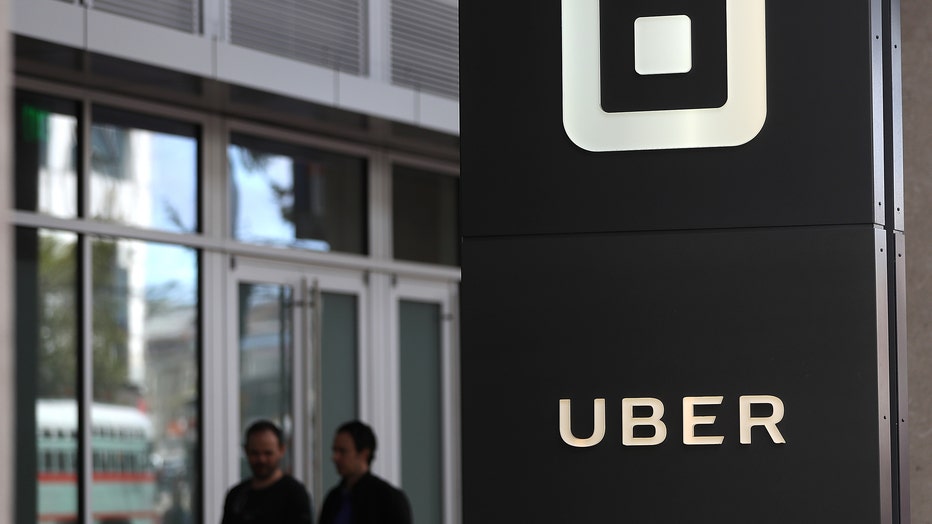Uber halting ‘Greyball’ tool used to mislead law enforcement


Uber headquarters in San Francisco, California. (Justin Sullivan/Getty Images)
By Ese Olumhense
‘Expressly prohibiting’ use to target officials
Uber has announced that it will end the use of a controversial “Greyball” tool the company has used to identify and evade regulators in markets in which the car sharing service has been prohibited for years.
First revealed by The New York Times on Friday, “Greyball” relied on at least a dozen factors, including location information and credit card data, to determine if a user hailing a car was a regulator or law enforcement official. A user tagged as such subjected to the Greyball technology would only see an alternate version of the app — one featuring “ghost cars,” that they couldn’t hail, or no cars at all.
Though some at Uber reportedly raised questions about the legality and ethics of the Greyballing program, its use was approved by the legal team, and its implementation was known to senior Uber staff.
In a statement Wednesday from Chief Security Officer Joe Sullivan, Uber both confirmed its use of the technology and promised to end the practice.
“We have started a review of the different ways this technology has been used to date,” Sullivan said. “In addition, we are expressly prohibiting its use to target action by local regulators going forward. Given the way our systems are configured, it will take some time to ensure this prohibition is fully enforced.”
Why some regulators have issues with Uber
Greyball was one of Uber’s solutions to its repeated, costly issues with officials around the world. Some governments have expressed a bevy of concerns about how the service is regulated.
Traditional cab drivers usually undergo a background check and are photographed, fingerprinted, and assigned an identification number by a local government. Most Uber drivers — who are classified as “noncommercial drivers” because they drive their private vehicles — need only pass a background check (conducted by a third-party) and have a vehicle inspection.
In the U.S. alone, lawmakers have lambasted Uber’s background screening standards as lax, and experts have been critical of the absence of fingerprint checks — which are linked to national FBI and Department of Justice databases — from Uber’s screening process.
Uber has also led enthusiastic (and expensive) lobbying efforts against rules that would mandate fingerprint checks for its drivers. In cities that have insisted on such precautions, like Austin, Texas, Uber suspended operations. Less than a month after Austin implemented fingerprint-based background checks in August 2016, close to 100 drivers were barred from operating for ridesharing services, according to Austin’s transportation department.
Uber CEO Travis Kalanick has described these requirements as “unjust,” saying that they discriminate against drivers with criminal records.
Is the fallout just beginning?
Fallout from the Greyball revelations is the latestdramaticchapterin Uber’stumultuousyear.
Officials in Portland have called for an investigation into the company’s use of Greyball technology, which was used to duck city regulators in 2014 before the service was legalized there in 2015. The results of the proposed investigation could jeopardize the San Francisco-based company’s efforts to expand throughout Oregon.
Nick Fish, a Portland commissioner, is also asking the city to seek subpoena authority to learn more about Greyball.
“I've been on the council for eight years, and this is the most serious breach of trust that I have observed in an industry that we regulate," Fish told The Oregonian. "This is not just bad behavior. This is an attack on our ability as a local community to enforce community standards.”
State legislators in Portland have filed a bipartisan bill, H.B. 3246, which would further regulate Uber in Oregon, and the state’s Justice Department is reportedly looking into the practice.
Uber’s Greyball issues may not be limited to Portland, either. The day The New York Times exposé of Greyball broke, a member of the European Parliament asked the European Commission if it would investigate Uber for possible breaches of European Union law. It’s unclear whether other countries will follow suit.

